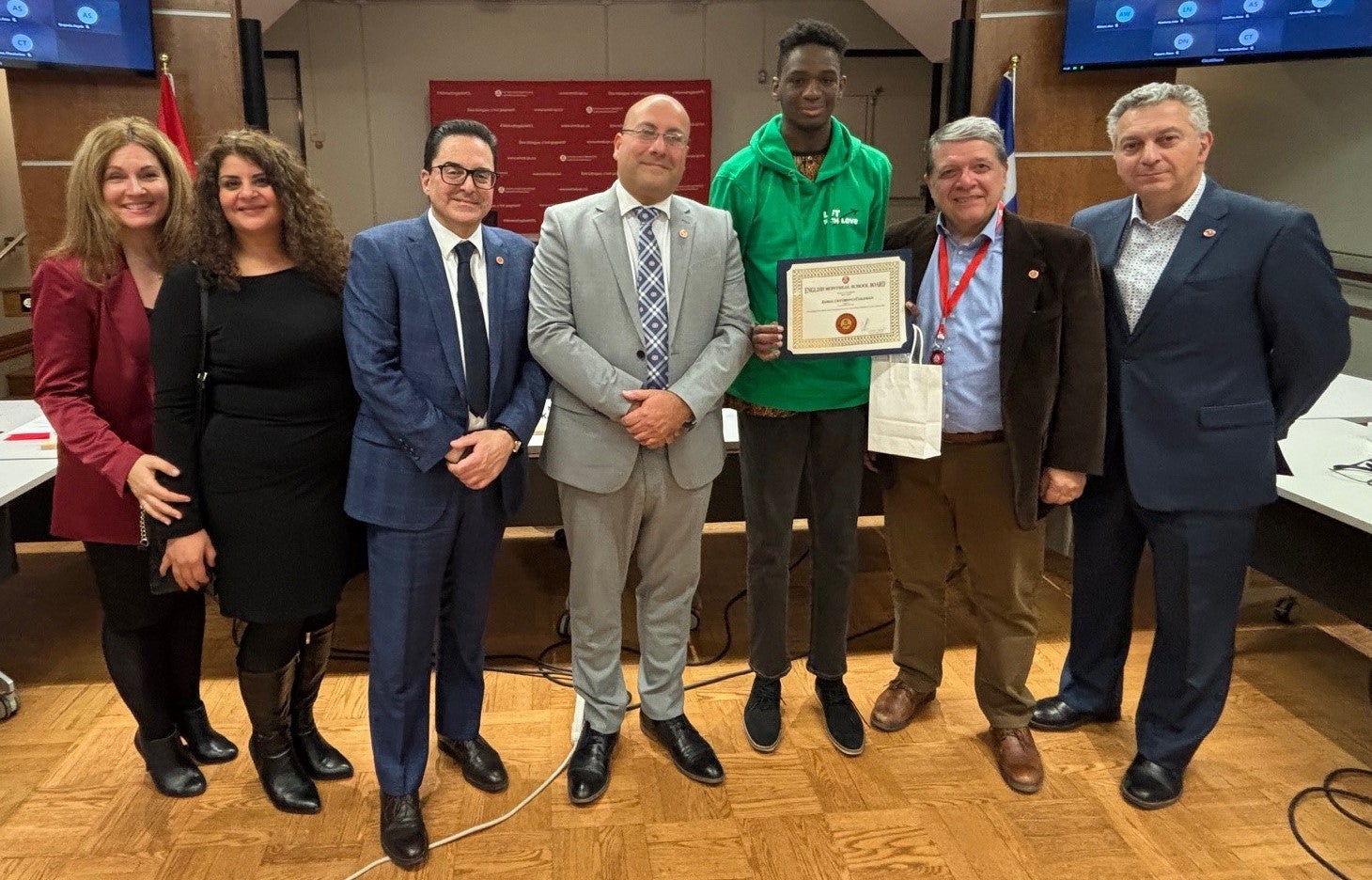St. Gabriel is a true community school cherishing heritage while embracing diversity.
Staff, parents, volunteers, and the community work together to guarantee that all children develop to the best of their abilities.

By: EMSB Communications
The English Montreal School Board (EMSB) proudly celebrates its continued dominance as Quebec’s leader in graduation success, surpassing both the public and private sectors. According to the latest data from the Ministère de l’Éducation du Québec, the EMSB achieved an impressive 93.2 percent graduation rate for the 2023–2024 academic year, solidifying its position as the top-performing school board in the province.
This remarkable achievement outpaces the provincial average of 82.4 percent, which includes public schools at 79.8 percent and private institutions at 92.5 percent. The EMSB’s consistent ability to exceed the private sector’s performance underscores the strength and quality of public education within its network. While the 2023–2024 rate reflects a minor adjustment from the previous year’s 95.9 percent, the EMSB remains unmatched in delivering exceptional outcomes for its students.
“Our students have once again proven that public education can outperform even the most elite private institutions,” said EMSB Chair Joe Ortona. “Despite financial challenges, our dedicated team of educators delivers unparalleled results. As open house season approaches, we invite parents to discover why an EMSB school is the best choice for their child’s future. Our unwavering focus on student success sets us apart as Québec’s gold standard in education.”
EMSB Director General Nick Katalifos added: “Once again everyone on our team rose to the occasion. The results stem from a collective effort—our teachers, in-school administrators, support staff, and professionals from all of the departments at the Board.”
EMSB Director of Educational Services Anna Sanalitro praised the teaching staff’s transformative impact. “Good teachers ignite curiosity,” she said. “They don’t just provide answers—they provoke thought. They ask powerful questions, connect material to real-world issues, and inspire students to think critically and independently. In doing so, they teach students how to learn, not just what to learn.”
With a youth and adult sector population of more than 35,000 students, the English Montreal School Board (EMSB) is the largest English public school board in Québec. Established on July 1, 1998, following the province’s creation of linguistic school boards, the EMSB network comprises 73 schools and centres. For more information, visit www.emsb.qc.ca.
By: EMSB Communications
Open House season at the English Montreal School Board is well underway in the youth sector.
Doors are now open to welcome prospective students and their families to showcase all that the schools have to offer. It is a valuable opportunity to meet the administration, staff, and students, explore the facilities, and ask questions.
For a complete list, visit: www.emsbopenhouses.com.

Visit the EMSB's educational resources section for educational and mental health support links for families. Links and activities for elementary and high school students are available.
Click here to visit the EMSB Education website
The provincial Government also has a new educational website called Open School where you can find more educational activities for your children.

We’re thrilled to share some exciting news, St. Gabriel has achieved Gold Certification through the EcoSchools Canada program!
This recognition celebrates the incredible work our students, staff, and families have done to care for the environment through our many eco-initiatives this year. From implementing a composting program to recycling our milk cartons to building a pollinator garden, every action has made a difference.
Thank you for your continued support and commitment to building a more sustainable and environmentally conscious school!










By: EMSB Communications
The English Montreal School Board (EMSB) proudly celebrates its continued dominance as Quebec’s leader in graduation success, surpassing both the public and private sectors. According to the latest data from the Ministère de l’Éducation du Québec, the EMSB achieved an impressive 93.2 percent graduation rate for the 2023–2024 academic year, solidifying its position as the top-performing school board in the province.
This remarkable achievement outpaces the provincial average of 82.4 percent, which includes public schools at 79.8 percent and private institutions at 92.5 percent. The EMSB’s consistent ability to exceed the private sector’s performance underscores the strength and quality of public education within its network. While the 2023–2024 rate reflects a minor adjustment from the previous year’s 95.9 percent, the EMSB remains unmatched in delivering exceptional outcomes for its students.
“Our students have once again proven that public education can outperform even the most elite private institutions,” said EMSB Chair Joe Ortona. “Despite financial challenges, our dedicated team of educators delivers unparalleled results. As open house season approaches, we invite parents to discover why an EMSB school is the best choice for their child’s future. Our unwavering focus on student success sets us apart as Québec’s gold standard in education.”
EMSB Director General Nick Katalifos added: “Once again everyone on our team rose to the occasion. The results stem from a collective effort—our teachers, in-school administrators, support staff, and professionals from all of the departments at the Board.”
EMSB Director of Educational Services Anna Sanalitro praised the teaching staff’s transformative impact. “Good teachers ignite curiosity,” she said. “They don’t just provide answers—they provoke thought. They ask powerful questions, connect material to real-world issues, and inspire students to think critically and independently. In doing so, they teach students how to learn, not just what to learn.”
With a youth and adult sector population of more than 35,000 students, the English Montreal School Board (EMSB) is the largest English public school board in Québec. Established on July 1, 1998, following the province’s creation of linguistic school boards, the EMSB network comprises 73 schools and centres. For more information, visit www.emsb.qc.ca.